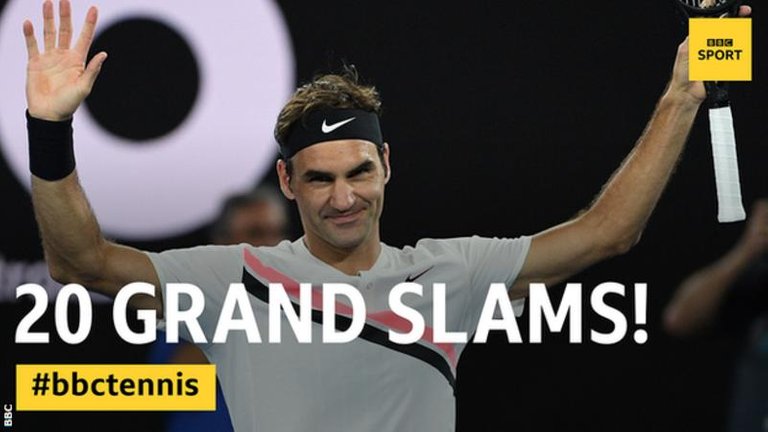
When Roger Federer won back his Australian Open title a year ago, five years after his previous Grand Slam title, it felt like an impossible gift from the past, one final reminder of what had once been at a time when all assumed it had gone forever.
The man was 35. He had been out for six months after knee surgery and back problems, 17th seed for a reason. You were astonished by the comeback and you were thankful to have witnessed one glorious final heist.
We were all fools. In the past 12 months Federer has now won three Grand Slam titles. At 36 he began this Aussie Open as favourite and then won it with the loss of only two sets (and both of those in the final).
This is not nostalgia. This is now. This is new dominance, not an echo of past glories, a greatest hits tour that has produced three fresh classics.
'Age is not an issue,' says Federer at 36
In the build-up to Sunday's final against Marin Cilic, Federer went into Melbourne to seek inspiration by watching Gary Oldman's new Churchill biopic.
It was his only misjudgement of the fortnight. Darkest Hour? This is more a second golden age, and there is no reason to think it will be a brief one.
In the six years from 2011 to 2016, Federer won just one Grand Slam title. A year ago he was supposed to be not only past his prime but past the period when he was past his prime.
He injured his knee running a bath for his four kids. At Wimbledon he fell on his face in futile chase of a forehand from Milos Raonic, a man with half his range of skills but nine years younger and faster. He had finally admitted that he needed to use a bigger racquet-head, like a man accepting middle age by wearing reading glasses round the house.
Novak Djokovic was the king, Andy Murray in charge of his own grassy empire. The kids were queuing up outside them. A graceful retirement appeared to be accelerating round the corner.
And now this: an Australian Open title, the regaining of his Wimbledon crown, the retention of his title in Melbourne. With Rafa Nadal defending a lot of ranking points over the next two months, it is quite possible that Federer could be world number one again by the end of March.
Twenty Grand Slam singles titles, four more than any other man (Nadal) in history, within three of Serena Williams, the other great survivor and revivalist of the modern game. And why should it stop there, with his rivals injured and the young dashers stalled, and Wimbledon waiting to welcome him back once more?
Federer's win in Melbourne 12 months ago brought back memories of Jack Nicklaus winning his 18th major at Augusta in 1986, 23 years after his first, six years after his last. But that was it for Nicklaus, barring a sentimental charge to sixth place at the Masters in 1998.
It triggered comparisons too with Muhammad Ali in Kinshasa in October 1974, winning back his own crown from George Foreman at the age of 32, a champion returning from exile in a way few could believe.
Ali would have two more defining nights, once when out-surviving Joe Frazier in that brutal death-spiral in Manilla a year later, again when winning his re-match with Leon Spinks at an age when his aura could barely disguise the damage done to his body and mind.
Hello,
Not indicating that the content you copy/paste is not your original work could be seen as plagiarism.
These are some tips on how to share content and add value:
Repeated plagiarized posts are considered spam. Spam is discouraged by the community, and may result in action from the cheetah bot.
If you are actually the original author, please do reply to let us know!
Thank You!
More Info: Abuse Guide - 2017.
Hi! I am a robot. I just upvoted you! I found similar content that readers might be interested in:
http://www.apdnews.com/sports/818542.html